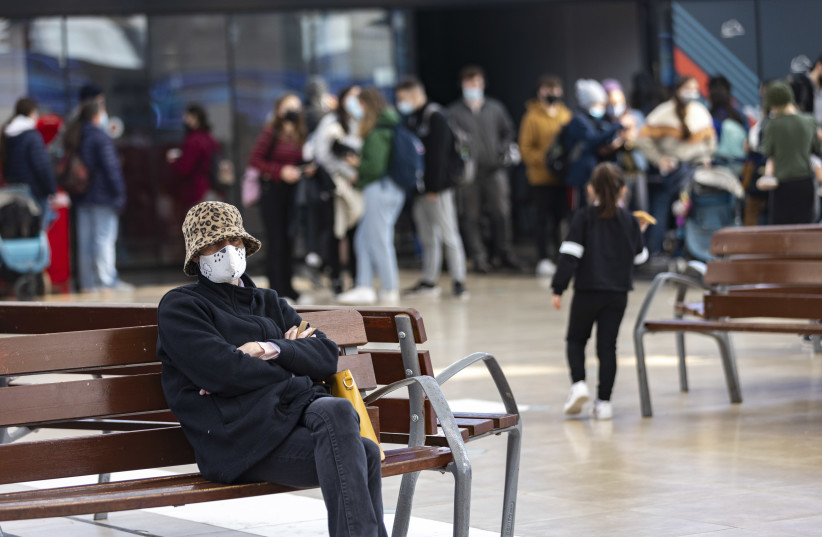The education system is set to start operating Sunday according to general coronavirus quarantine and isolation policies, as the government and the coronavirus cabinet are set to meet to discuss the unprecedented surge in cases in Israel.
Under the new system, if a virus carrier is identified in a class – whether student or teacher – all the others in the class will need to undergo an antigen test – at home or at a testing station). If the result is negative they can continue learning in person; if positive, they need to enter isolation for ten days.
Those who are not vaccinated have to undergo an antigen test at a testing station and be in isolation for seven days – even if the result is negative – and for ten days if positive.
The outline applies to all educational institutions from daycares to universities. Those jabbed only once, or six months has passed since their second shot, are not considered vaccinated.
In addition, it was decided that a district physician from the Health Ministry may order the closure of an educational institution in consultation with the relevant district director in the Education Ministry.

Under previous rules, classes with fewer than 70% of students vaccinated in red areas – with a high level of morbidity – had to learn from home. Under the new system, the ministry’s Traffic Light classification – which divided cities into red, orange, yellow and green – was canceled.
The current testing and quarantine rules come into effect in schools two days after coming into effect in the country on Friday. The system, which reserves the PCR tests for people over 60 and for at-risk groups, has drawn criticism because of the lower level of accuracy of antigen tests compared to PCRs, and for the high cost of at-home antigen tests.
Meanwhile, the number of coronavirus cases in Israel continues to rise. Almost 19,000 cases were recorded on Friday, the Health Ministry said Saturday night.
Overall Israel has registered around 105,000 active cases. Both figures mark a record since the beginning of the pandemic. Another 10,000 cases were registered as of press time on Saturday.
The number of serious cases also continues to rise. On Saturday night there were 172, on Friday 153. Last Saturday there were 103.
Although Omicron appears to be milder than Delta, health experts and officials expect over 2,000 serious cases in the upcoming weeks.
To prevent sick patients from deteriorating further, healthcare providers have started to administer antiviral treatments that protect at-risk infected individuals from developing serious symptoms.
On Saturday, Israel received the first shipment of Molnupiravir pills manufactured by Merck, after Pfizer’s Paxlovid pills arrived last week.
Also on Sunday, Israel reopened its borders to fully vaccinated tourists for the first time since November, after the surge in cases in the country rendered travel restrictions ineffective in reducing morbidity.
According to reports in the Hebrew media, the coronavirus cabinet was set to meet later in the day to discuss the situation.
